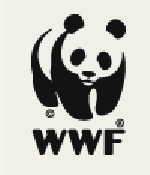GESI Specialist
Major Responsibilities: Under the supervision of the Head of Program Development & Monitoring, the Gender Equality and Social Inclusion (GESI) Specialist will lead the planning and implementation of the GESI strategy in WWF Nepal. The GESI Specialist will be responsible in assessing and identifying key GESI issues, preparing annual GESI plan in all thematic areas, providing strategic support in GESI and mainstreaming GESI issues in program development. S/he will ensure and support the organization to deliver on a viable plan to achieve the objectives of GESI integration, from mainstreaming to transformative approach in its programs and projects in alignment to the strategy.
Qualifications: A Masters’ degree in Gender and Development Studies, or relevant Environment Conservation field with at least five years of working experience in conducting GESI analysis and development of strategies for gender mainstreaming and transformative initiatives. The GESI Specialist must have strong analytical and organizational skills as well as attention to detail with thorough knowledge of gender and social inclusiveness.
Interested applicants are requested to download the application form and submit it with an application letter to the email address listed below by 17:00 hours on 11th October 2021. Please mention the position you are applying for as the subject. Emails without an application letter and completed application form will not be entertained. Only shortlisted candidates will be informed. Detailed TOR for the above-mentioned position can be downloaded from our website.
Email: hr@wwfnepal.org
WWF is an Equal Opportunity Employer. Please join us in our mission to save life on Earth.
This Job is expired. The Company is no longer accepting applications for this position.
WWF is the world’s leading independent conservation organization originated from Switzerland in 1961 and currently running in more than 100 countries across 6 continents. The program started from conservation of wildlife to broader concept of building future where humans can live in harmony with nature. WWF has created 1,480 ecoregions that categorize the world into its natural ecosystems. Nepal with Bhutan, northeast India, southeast Tibet and northern Myanmar, falls under the Eastern Himalaya region housing the threatened species Snow Leopards, Bengal Tigers and One-horned Rhinos.
It was in 1967, WWF initiated WWF Nepal with a rhino conservation program in Chitwan. To keep up with the evolving face of conservation and environmental movement, WWF Nepal’s focus progressed from its localized efforts in conservation of single species in 1960s, integrated conservation and development approach in 1990s, to a new horizon of landscape level conservation encompassing national, regional and global scales of complexity in early 2000s.
